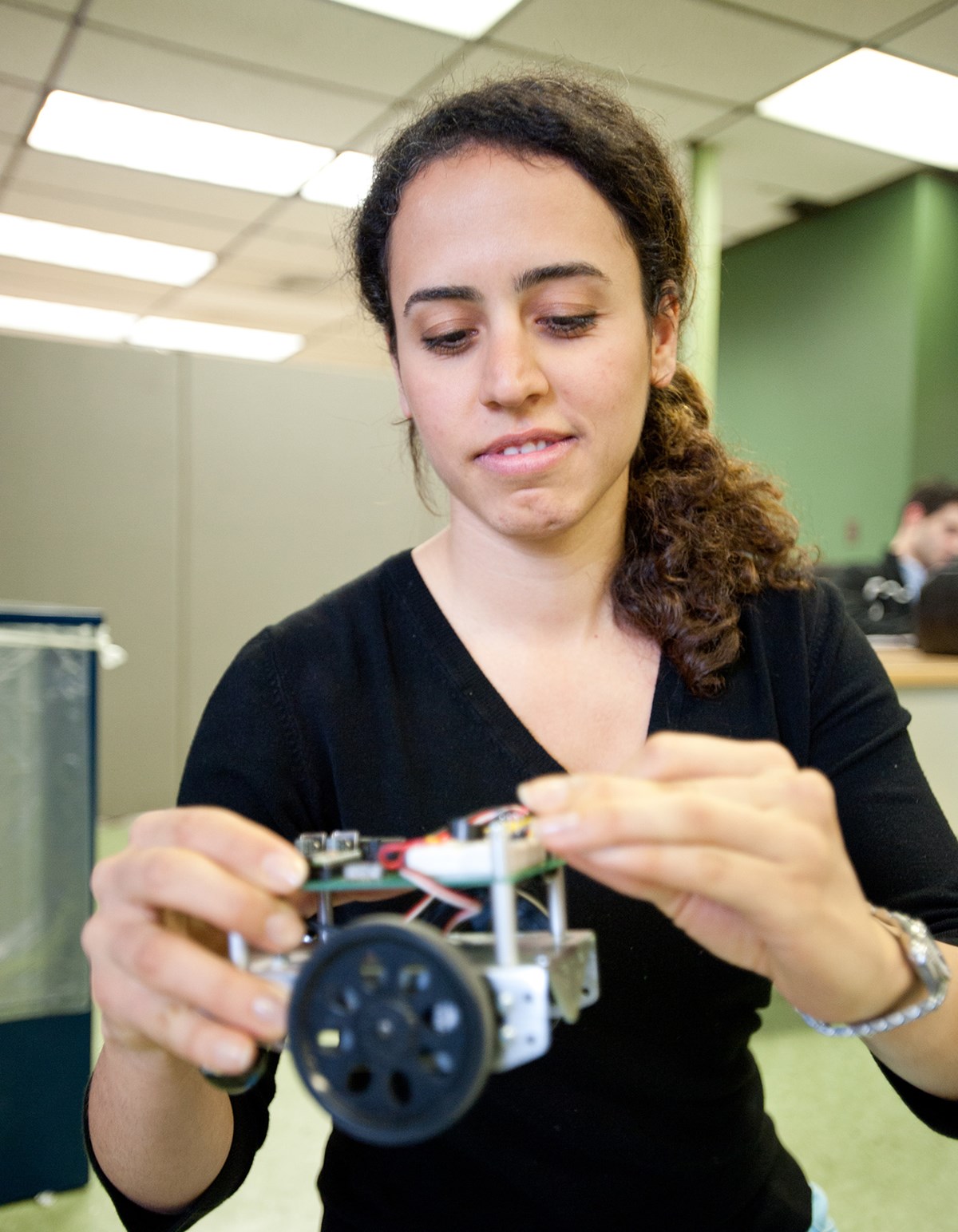
Program Options
The Department of Electrical and Computer Engineering (ECE) offers two undergraduate degrees:
- Bachelor of Science in Electrical Engineering (B.S. in EE)
- Bachelor of Science in Computer Engineering (B.S. in CE)
- Double major: Electrical Engineering/Computer Science (EE/CS)
- Double major: Electrical Engineering/Physics (EE/Physics)
All undergraduate students are assigned faculty advisors and students are required to meet with their advisors, especially during registration periods or whenever there is some matter of concern. Students should consult with their advisor on the best path through each track. This is especially true for coop and part-time students, since the need to adhere to prerequisite course requirements is very important.
For the latest information, including course descriptions, degree pathways and more please visit the UMass Lowell Undergraduate online Catalog.

Coordinator
- Transfer:Professor Jean-Francois Millithaler, Phone: 978-934-3144
Focus Areas
The ECE Department has five technology focus areas:
- Computer Engineering
- Electrical Power and Energy Engineering
- Electromagnetic and Electromagnetic Properties of Materials
- Micro- and Optoelectronic Materials, Circuits and Systems
- Telecommunications and Information Engineering
General Education Requirements
Students are required to take three social science and two art and humanities courses.
For the latest information, including course descriptions, degree pathways and more please visit the UMass Lowell Undergraduate online Catalog.
